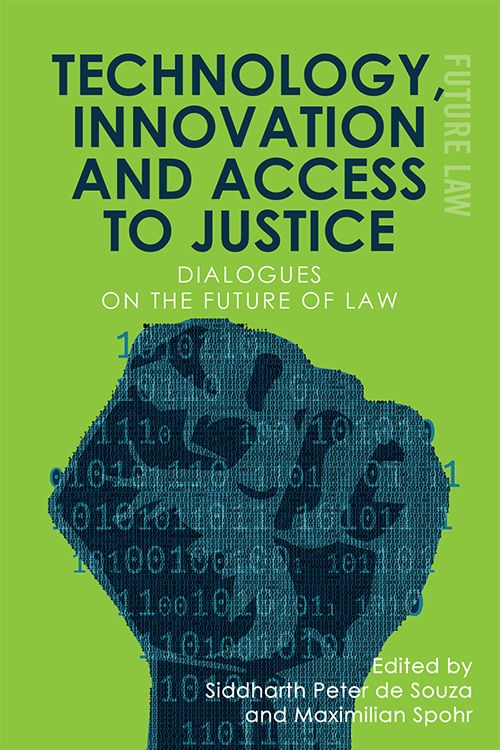One of the most significant changes in legal practice is the digitization of legal research. Gone are the days of poring over heavy law books in dusty libraries. Today, legal professionals have access to vast digital databases and online legal research tools that enable them to search, cite, and analyze case law, statutes, and legal opinions more efficiently. This increased accessibility to legal information not only streamlines the research process but also contributes to a more informed legal practice.
Another notable innovation reshaping legal practice is the emergence of online dispute resolution platforms. These platforms provide a virtual space for resolving legal disputes, making the process more accessible and cost-effective. Parties involved in a dispute can engage in mediation, arbitration, or negotiation online, reducing the need for in-person meetings and lengthy courtroom proceedings. This technology-driven approach not only speeds up the resolution process but also improves access to justice by making legal dispute resolution more affordable and convenient for individuals and businesses alike.
Explore this link for a more extensive examination of the topic: The Implications of ChatGPT for Legal Services and Society …

Electronic discovery, or e-discovery, has revolutionized the way legal professionals handle vast volumes of electronic data in litigation cases. Advanced data analytics tools and machine learning algorithms can sift through mountains of digital information, identifying relevant evidence and patterns that would be nearly impossible to uncover manually. This technology not only saves time and resources but also helps legal teams build stronger cases.
Electronic discovery (e-discovery) is a game-changer in the legal field, especially in an age where digital data is abundant and complex. This powerful tool has transformed the way legal professionals navigate the intricate landscape of electronic information in litigation cases.
One of the most significant advantages of e-discovery is its ability to efficiently process massive volumes of electronic data. In today’s digital age, a single case can involve terabytes of information, including emails, documents, databases, and more. Manually reviewing this amount of data would be a daunting and time-consuming task. E-discovery technology, on the other hand, employs advanced algorithms and machine learning to swiftly sift through the data, identifying relevant evidence and insights. This speed and efficiency not only save valuable time but also reduce costs associated with manual document review.
Moreover, e-discovery tools are not just about finding documents; they can uncover patterns and trends within the data that might have otherwise remained hidden. Advanced data analytics can reveal connections, correlations, and anomalies that provide valuable insights for building a stronger case. For example, they can identify communication patterns between individuals, establish timelines of events, or highlight discrepancies in testimony and evidence. These discoveries can be instrumental in constructing a compelling legal strategy.
E-discovery also enhances the quality and accuracy of legal work. It minimizes the risk of human error that can occur during manual data review. Legal professionals can have greater confidence in the results produced by e-discovery tools, as they are based on systematic and objective analysis. This accuracy extends to the preservation of metadata, which can be crucial in establishing the authenticity and integrity of electronic evidence.
Furthermore, e-discovery promotes collaboration and streamlines the workflow among legal teams. With data stored in electronic formats, multiple team members can access and work on the same documents simultaneously, regardless of their physical locations. This collaborative approach improves communication, reduces delays, and enhances overall productivity.
While e-discovery brings tremendous benefits, it also presents legal professionals with ethical and privacy challenges. Protecting sensitive information and ensuring compliance with data privacy regulations are essential considerations. Legal experts must carefully navigate these issues to maintain the integrity of the legal process.
In conclusion, e-discovery has revolutionized the legal landscape by offering efficient and powerful tools for handling electronic data in litigation cases. This technology not only saves time and resources but also empowers legal teams to uncover valuable insights and build stronger cases. As electronic information continues to proliferate, the role of e-discovery in the legal profession will only become more central and indispensable.
For a comprehensive look at this subject, we invite you to read more on this dedicated page: If Only We Knew What We Know

Online dispute resolution platforms have emerged as a game-changer in providing accessible and efficient justice. ODR allows parties to resolve disputes through online channels, reducing the need for costly and time-consuming courtroom litigation. These platforms use technology to facilitate negotiation, mediation, and arbitration processes, making justice more accessible to a wider range of individuals and businesses.
The advent of online dispute resolution (ODR) platforms has ushered in a transformative era in the realm of justice accessibility. ODR’s innovative approach harnesses the power of technology to streamline dispute resolution, offering a cost-effective and time-efficient alternative to traditional courtroom litigation. By enabling parties to engage in negotiation, mediation, and arbitration processes remotely, ODR empowers a broader spectrum of individuals and businesses to seek fair and accessible justice. This digital evolution not only enhances convenience but also aligns with the evolving needs of a rapidly changing world.
If you’d like to dive deeper into this subject, there’s more to discover on this page: Online dispute resolution: The future of justice – ScienceDirect

Legal chatbots and artificial intelligence (AI) assistants are becoming invaluable tools for both legal professionals and individuals seeking legal guidance. Chatbots can provide basic legal information, answer frequently asked questions, and guide users through legal processes, such as filling out forms or understanding legal jargon. AI-powered assistants can help lawyers sift through documents, perform legal research, and draft legal documents more efficiently.
These technological advancements not only improve the efficiency of legal services but also make legal information more accessible to the general public. Whether you’re a legal professional looking to streamline your workflow or an individual in need of legal assistance, legal chatbots and AI assistants are reshaping the way legal services are delivered, ultimately promoting greater access to justice for all.
Don’t stop here; you can continue your exploration by following this link for more details: The ethics of artificial intelligence: Issues and initiatives

The rise of telecommuting and remote work has extended to the legal profession, allowing lawyers to provide legal services remotely. Virtual law firms, online consultations, and electronic document signing platforms have made it possible for individuals to access legal services from the comfort of their homes. This has been especially crucial during the COVID-19 pandemic, ensuring continuity in legal services while prioritizing safety.
Remote legal services have not only increased accessibility but also improved flexibility for both lawyers and clients. It has opened up new possibilities for legal consultations, document reviews, and case management, making legal support more convenient and efficient than ever before.
Explore this link for a more extensive examination of the topic: The ethics of artificial intelligence: Issues and initiatives

Technology has also facilitated greater access to legal aid and self-help resources for those who may not be able to afford traditional legal services. Online legal aid organizations, self-help websites, and mobile apps provide valuable information and tools for individuals navigating legal challenges. These resources empower individuals to understand their rights and take informed actions.
In the digital age, technology has democratized access to legal information and assistance like never before. Online legal aid organizations, self-help websites, and mobile apps have become indispensable tools for individuals seeking legal guidance. These platforms offer a wealth of resources, from informative articles and legal templates to interactive guides and chatbots that can answer common legal questions. This easy access to legal information empowers individuals to navigate their legal challenges with confidence, understand their rights, and make informed decisions. As technology continues to advance, the legal landscape is becoming more inclusive, ensuring that justice is within reach for all, regardless of their financial means.
Don’t stop here; you can continue your exploration by following this link for more details: Algorithmic bias detection and mitigation: Best practices and policies …

Blockchain technology is making waves in the legal world, particularly in contract management. Smart contracts, which are self-executing contracts with the terms of the agreement directly written into code, have the potential to automate and streamline contract processes, reducing the need for intermediaries and disputes.
Blockchain technology is poised to revolutionize the legal landscape. Smart contracts, powered by blockchain, offer unprecedented transparency and security in contract execution. This innovation holds the promise of not only reducing administrative burdens but also minimizing legal disputes, ultimately contributing to a more efficient and equitable legal system. As blockchain continues to evolve, its potential applications in law are limitless, reshaping the way legal professionals work and ensuring greater trust and accountability in legal transactions.
Don’t stop here; you can continue your exploration by following this link for more details: No 117 – Fintech and the digital transformation of financial services …

Conclusion
In conclusion, technology is driving a transformative wave of legal innovations that are improving legal practice and enhancing access to justice. From online legal research and e-discovery to ODR platforms and AI assistants, these innovations are increasing efficiency, reducing costs, and expanding access to legal services. As technology continues to evolve, the legal profession must embrace these changes to better serve the needs of a diverse and interconnected society. The synergy between technology and the law promises a future where justice is more accessible and the legal system is more efficient and responsive to the needs of individuals and communities.
Additionally, you can find further information on this topic by visiting this page: October 2022 – Michigan Law Journal of Law and Mobility
More links
Looking for more insights? You’ll find them right here in our extended coverage: Experts Say the ‘New Normal’ in 2025 Will Be Far More Tech-Driven …
